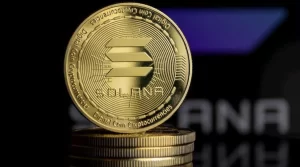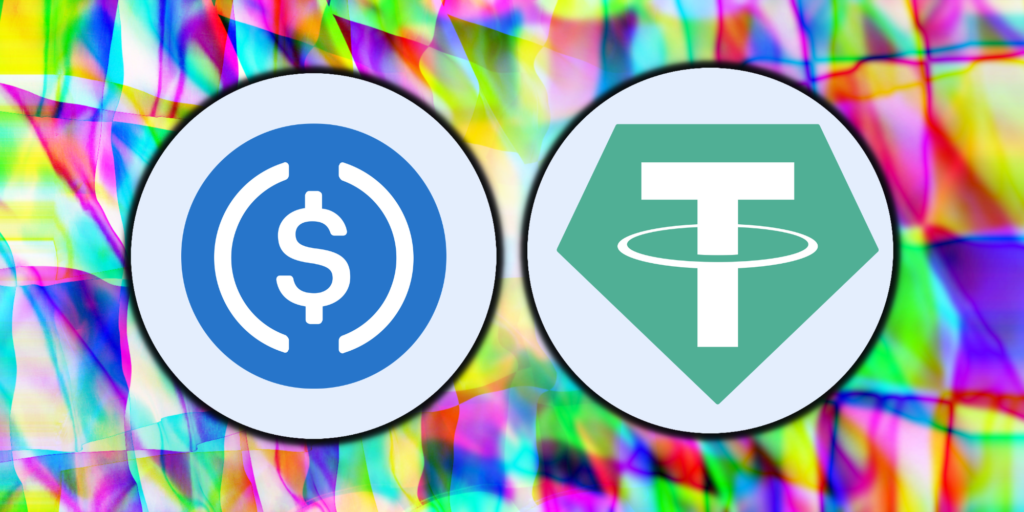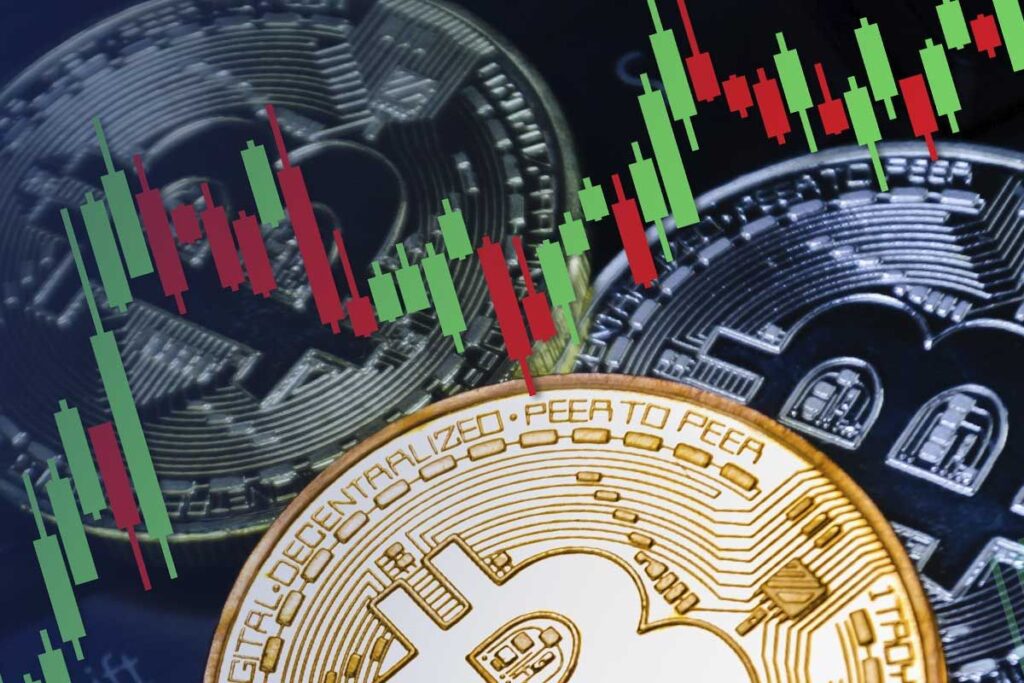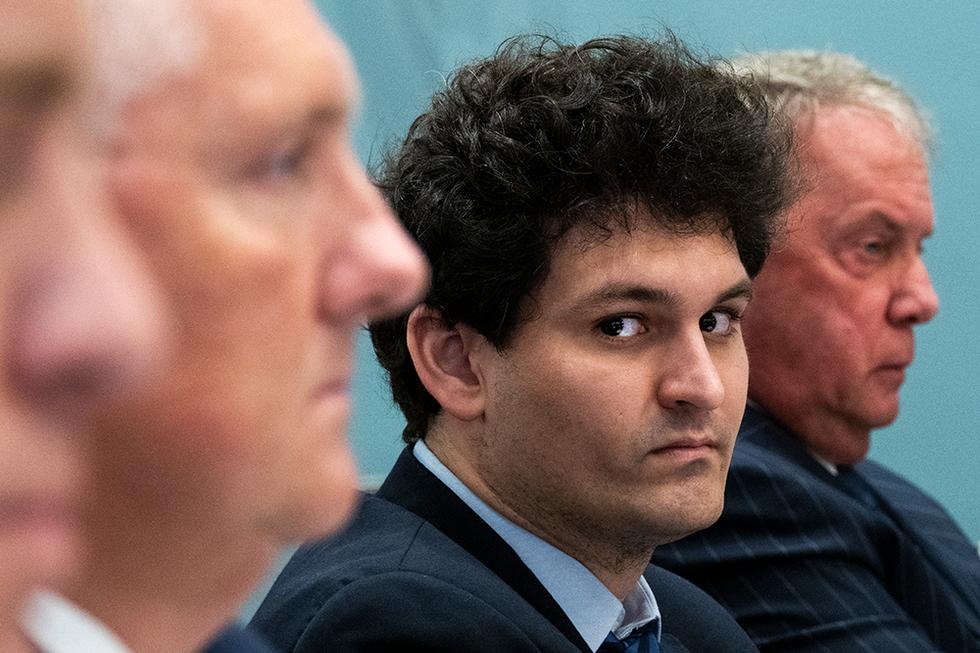Stablecoins have gained popularity in the crypto industry despite ongoing market volatility.
A Coin Metrics report found that on-chain stablecoin settlements topped $7 trillion this year and is set to reach $8 trillion by the end of the year.
The donations have continued throughout the year, most recently with the United Nations’ plan to send $USDC to Ukrainians displaced from their homes. #Stablecoins have settled more than $7 trillion in value, a record-breaking value compared to previous years. pic.twitter.com/n81OfNCtWS
— CoinMetrics.io (@coinmetrics) December 20, 2022
Peter Johnson, venture co-head at Brevan Howard Digital, said in a Wednesday tweet that stablecoin settlements had surpassed those from Mastercard and American Express.
Currently, Visa, the largest card platform, processes $12 trillion a year. According to Johnson, on-chain stablecoin volumes would exceed those from Visa.
Despite his observations, others have noted that credit card and stablecoin settlement volumes are completely different. The former involves consumer spending, with the latter involving cryptocurrency trading and decentralised financing.
3/ (Note that this is just on-chain settlement volume, and does not include trading volume on centralized exchanges)
— Peter Johnson (@TheChicagoVC) December 21, 2022
Regulations remain the largest obstacle for stablecoins as they are an emerging technology compared to credit cards.
Some lawmakers in the United States Senate have submitted legislation to allow non-state and non-bank entities to issue stablecoins. Such institutions would need to receive a federal licence from the US Office of the Comptroller of the Currency (OCC) backed by “high-quality liquid assets.”
According to current figures, stablecoins also have a market capitalisation of 16.5 percent of the total market, or roughly $140 billion, with Tether (USDT) consisting of 66.3 billion.
South Korea’s northeastern and second-largest city Busan has announced it would drop most of its cryptocurrency partners on centralised global exchanges. The decision comes after several prominent exchanges and projects – FTX, Terra/Luna, and Voyager – collapsed in recent months.
The coastal city has been named South Korea’s blockchain capital and recently revealed an 18-person steering committee. None of the people sitting on the body were from major centralised platforms, including Binance, Gate.io, Huobi Global, FTX, and Crypto.com.
The steering committee aims to advise government authorities and investors on operating cryptocurrencies along with other digital assets. It also hopes to deepen cooperation for cryptocurrency frameworks and cooperate with foreign entities.
Second Thoughts?
News of FTX’s collapse forced Busan authorities to rethink including centralised exchanges. However, it stated it could proceed with its plans without assistance from outside sources.
According to reports, committee members stated problems with crypto platforms like FTX and others “seem to have influenced [the decision].” Other stated centralised exchanges were never included in city and supported initial liquidity offerings.
The city also plans to outline how it will separate securities and non-securities assets, along with listing and monitoring channels for assets. It established a fund for the initiative in the first half of the year, leading to the city founding a regulation-free zone for blockchain in July 2019.
Efforts to back the initiative increased after telecoms giant Korea Telecom (KT) collaborated with the city to develop infrastructure to support blockchain technologies.
Core Scientific, a key Bitcoin (BTC) mining firm, has reportedly filed for Chapter 11 bankruptcy shortly after creditors extended a lifeline to the embattled firm.
The company received the protections in Texas, citing poor earnings and plummeting BTC values.
Financial services platform B Riley offered the $72 million non-cash financing bailout to Core Scientific. The deal included zero contingencies and $32 million with stipulations. The news comes after the firm’s value plummeted from $4.3 billion in July last year to $78 million to date.
To remain in operation, Core Scientific sold off 9,618 BTC in April this year. While it can continue with its mining operations, the firm cannot earn enough revenues to cover costs due to operations.
While the company continues to generate positive cashflows, the income is not sufficient to cover the operational costs, which involve repaying the lease for its Bitcoin mining equipment.
The firm previously filed for financial distress with the United States Securities and Exchange Commission (SEC) in late October. The company stated in its filing that high electricity fees, Bitcoin hash rate hikes, and low BTC prices led to the collapse of crypto lending firm Celsius, eliminating the latter’s Core Scientific debts.
Courts ordered Celsius to pay back clients a total of $44 million following its collapse. The news follows an agreement the lending firm reached with stakeholders, stating crypto held in custody accounts belonged to users and not centralised platforms.
Solidus Labs, a company that assesses and monitors blockchain risks for the cryptocurrency sector, reported this month that fraudsters created over 350 fake crypto tokens per day to scam investors.
According to the firm’s Rug Pull Report, scammers deployed 117,629 fraudulent tokens, up 41 percent from 83,400 tokens found in 2021.
The report also found that BNB Chain contained 12 percent of the world’s fake BEP-20 tokens, topping the list of scam token holders to date. The Ethereum network arrived second place at 8 percent of scammy ERC-20 tokens.
Shamcoins and Sticky Situations
The news comes amid a rise in cryptocurrency schemes, including rug pulls and honeypots.
Rug pulls take place when groups create tokens, rapidly increase their value, and then abandon the coin after extracting the project’s value. Honeypots, the most popular form of fraud, is a smart contract for tokens prohibiting coin buying and reselling.
Most centralised exchanges (CEXs) and custodial wallets, namely under US regulators, have faced massive rug pulls in recent history, scamming over 153 exchanges for $11 billion in Ether (ETH) cryptocurrencies.
Recently, Avraham Eisenberg launched a major rug pull on Mango Markets, defrauding investors of $117 million with his exploit altcoin Mango Inu.
He later stated he “did nothing wrong” and had conducted “legal” actions in the rug pull.
According to figures, US CEXs top the list of countries with fraudulent transactions, followed by the Bahamas, where FTX ex-chief executive Sam Bankman-Fried was arrested by authorities.
The Squid Game (SQUID) token ballooned 45,000 percent before its founders disappeared with its funds, costing investors $3.3 million.
Such concerning instances have been on the rise since September 2020, following the collapses of Voyager, Celsius, and most recently, the massive bankruptcy of crypto exchange FTX.
Are you interested in starting your crypto exchange in the UK and obtaining a crypto exchange license requisite for your project? Are you afraid of possible failures because of the too-complicated regulatory framework? You are right at some points – the risk of rejection due to the failed compliance requirements is huge here. But, this risk can be minimized thanks to the tested experience of professional lawyers.
At the same time, the opportunities for raising big funds are enormous in the UK as well. The country has one of the biggest capital markets in the world. So, if you wish to start your own exchange or any other crypto startup and are called to obtain a UK crypto exchange license for that purpose, lawyers of Prifinance company are ready to guide you through the procedure to ensure a winning application in the end.
Steps to Get the So-called Crypto License in the UK
Why does the “so-called” license? That is because authorization in the UK is anticipated only – the Financial Conduct Authority (FCA) ensures that. This registration is some kind of alternative procedure that is implemented instead of licensing in its traditional meaning. Still, without authorization from the FCA, it is impossible or extremely risky to close any crypto deals within the UK territory.
In order to validate a crypto license in the UK (as we call it conditionally), it is necessary to pass these preliminary registration steps:
- Incorporate a separate UK legal entity that will serve as an authorized person for the purpose of arranging crypto deals.
- Open bank and/or EMI accounts.
- Find the company’s officers with the respective qualifications. In particular, it is necessary to emphasize the role of a compliance manager.
- Gather all the particulars of the company’s founders and affiliate entities. Precisely, natural persons need to share copies of personal IDs; and legal persons have to provide copies of their statutory documents and the confirmation of good standing. Providing the financial statements is also required.
- Form the registration package, providing among others:
- properly filled registration form;
- business plan;
- organizational chart;
- monitoring, risk management, AML, record tracking, and reporting policies;
- description of IT facilities available (the standardized templates are provided).
- Paying all application fees.
- Handling all the negotiations with the FCA officials, including providing extra documents and details that may be requested.
A registration plan may vary from case to case. Prifinance lawyers are ready to assist with your case and draft a personalized plan that will maximize the chances of success.
How Prifinance Lawyers Can Facilitate You
If you wish to start your crypto project exactly in the UK, Prifinance lawyers are ready to facilitate you with the easiest practical realization of this business objective, including:
- evaluating comprehensively your commercial background and particulars to find the best solutions for your future UK crypto project;
- registering a separate legal entity in the exact legal and organizational form to serve as a future crypto exchange;
- guaranteeing the overall compliance with the risk management and AML/CTF demands, developing all the required policies for this purpose;
- opening any bank and/or EMI accounts;
- handling all the required local negotiations with state officials;
- supporting with resolving all possible issues that may come on the agenda in the course of the next functioning of your crypto UK project.
Provide the details of your current business situation to get a more precise assessment and business solutions to the point. Prifinance lawyers are ready to share with you tested registration expertise to facilitate your project’s success.
Binance, the world’s largest crypto exchange, has shrugged off concerns about its liquidity amid a surge in investor redemptions.
On Saturday, the cryptocurrency giant told Crypto Intelligence News that its management is “not worried” about the growing withdrawals, as many investors seek self-storage or move their holdings to rival crypto platforms.
They added that Binance meets strict liquidity requirements and is 1:1 backed, with all investor assets being held in segregated accounts and wallets.
This comes hot on the heels of FTX, another rival crypto exchange, going bankrupt after experiencing a surge in withdrawals.
Binance initially considered taking over FTX, before deciding against the takeover due to concerns about the firm having mishandled customers’ funds.
The company’s native token, BNB, is currently down by around 15 percent in the last week, after falling a further six percent in the most recent 24 hours of trading.
Earlier this week, on Thursday, Binance CEO Changpeng Zhao said “We are financially OK” when asked if the exchange could handle a $2.1bn repayment – an amount they could have to pay back to FTX.
Zhao’s comments have done little to settle investors, with billions continuing to flow out of Binance and the exchange’s native token continuing to get hammered.
Sam Bankman-Fried, the former chief executive for now-bankrupt crypto exchange FTX, has denied knowledge of the “Wirefraud” secret group chat.
The group reportedly consists of former executives from the exchange platform and its research wing, Alameda Research.
Bankman-Fried took to social media to hit back at an Australian Financial Review (AFR) report on 12 December accusing the disgraced crypto executive of being involved in the Signal-based group chat.
According to the report, the collective included Nishad Singh, former FTX engineer, Caroline Ellison, Alameda Research chief executive, Zixiao Wang, FTX co-founder, and others. It added group members used the encrypted chat to share information about the two firms prior to their collapses.
If this is true then I wasn't a member of that inner circle
— SBF (@SBF_FTX) December 12, 2022
(I'm quite sure it's just false; I have never heard of such a group)
He said in a tweeted response to the article: “If this is true then I wasn’t a member of that inner circle (I’m quite sure it’s just false; I have never heard of such a group)
SBF Arrest, Potential Subpoena
The news comes as US officials expected the former exec to remotely join a United States House Committee hearing on Tuesday to testify on the events leading up to FTX’s collapse.
He was arrested a day before the hearing by Bahamian authorities on charges of wire and securities fraud, mishandling funds, and money laundering, among others.
Maxine Waters, House committee chair, later stated on Monday he would be unable to attend the hearing due to the arrest. The announcement comes after he was also expected to attend a further Senate Committee on Banking hearing on 14 December. His lawyers refused to accept a subpoena, Senators Pat Toomey and Sherrod Brown noted in a Monday joint statement on the matter.
The news comes just days after the United States Department of Justice (DoJ) launched an investigation to determine whether Bankman-Fried had committed fraud and funds offshoring days ahead of the crisis.
FTX suffered a huge liquidity crunch and subsequent bank run in mid-November, leading to the exchange’s Chapter 11 bankruptcy on 11 November along with Alameda and 130 affiliates.
Cynthia Lummis, a pro-cryptocurrency Senator in the United States, has voiced continued support for using Bitcoin for her retirement plans.
Working with Senator Kirsten Gillibrand, Lummis has proactively backed cryptocurrency regulations, namely after joining Semafor, an online media outlet, on Monday.
In the article, she stated that the ongoing cryptocurrency crisis had not deterred her from supporting Bitcoin and that she still backed people adding the digital asset to their 401(k) retirement packages.
Speaking at the meeting, she said: “I’m very comfortable with making sure that people can include Bitcoin in their retirement funds because it’s just different than other cryptocurrencies […] I personally believe that because there are only going to be 21 million Bitcoin that are mined, that Bitcoin will go up.”
In a recent tweet, she slammed FTX, stating its actions were “good, old-fashion fraud” and urged authorities to “ensure everyone who committed crimes is held accountable for what they did.”
She added she hoped her colleagues would support and pass the Lummis-Gillibrand Responsible Financial Innovation Act to “prevent future collapses like FTX.”
People lost their hard-earned money, and they deserve justice for any wrong doing. I am hopeful my colleagues share my desire to pass the Lummis-Gillibrand Responsible Financial Innovation Act. This comprehensive legislation would prevent future collapses like FTX.
— Senator Cynthia Lummis (@SenLummis) December 13, 2022
The news backtracks from previous stances the politician held in June last year, where she aimed to include specified cryptocurrencies.
She said at the time: “I’d also like to see individuals be able to use Bitcoin and cryptocurrencies of their preference that are safe, that have met the hurdles of anti-money laundering and Bank Secrecy Act.”
Conversely, Senators Elizabeth Warren, Richard Durbin, and Tina Smith, among others, have called for Fidelity Investments to cancel its Bitcoin-based retirement package plans in a recent letter, citing the ongoing FTX collapse.
It read: “As with all financial products, price fluctuations are an expected feature of the market — and it is shortsighted to believe that setbacks in an industry are an indication that it won’t experience long-term growth.”
CoinCorner and Bitnob have teamed up to offer global users cross-border transactions for multiple fiat currencies, a 12 December blog post revealed amid the ongoing crypto market crisis.
The new partnership aims to circumvent centralised third-party funds transfers across the Europe, Middle East, and Africa (EMEA) region. Such entities slow processing times and charge hefty fees per transaction.
Despite this, the new joint effort will allow Bitcoin (BTC) holders on the Lightning Network in regions such as the United Kingdom, European Union, and specified African nations to conduct transactions.
It conducts transactions on the network by instantly converting funds to BTC and then to the selected local currency, depositing the converted funds to the recipient holder wallet.
The group’s Send Globally option will allow users to send fiat currencies such as British Pound Sterling (GBP) and Euros (EUR) to Nigeria, Ghana, and Kenya, or NGN, GHS, and KES, respectively.
CoinCorner Chief Executive Danny Scott, said,
“The remittance market is a huge opportunity for Bitcoin. The borderless nature of Bitcoin has always made it a great tool for sending money around the world, but now with the Lightning Network, sending Bitcoin is instant and very low cost. By partnering with Bitnob to provide a seamless cross-border experience using Bitcoin and the Lightning Network, we hope to remove some of the friction and cost that customers experience when using traditional FX and money remittance companies.”
Africa and Remittances: By the Numbers
According to Tongayi Choto, co-founder for AfriBlocks, sending around $200 USD to Zimbabwe from the UK costs roughly $9.42 to $34.52, with an average sending fee of $15.57.
Other locations such as China accumulated average costs of $11.54, and remittances to Poland cost senders roughly $8.48, with UK-Zimbabwe fees skyrocketing 45.54 percent more than those to Poland.
Ghana maintained its position as the 2nd largest recipient of remittances in Africa, recording $4.7 billion inflows in 2022.
— StatsGH (@StatsGH) December 5, 2022
This is 4.4% more than the previous year.
Meanwhile, Nigeria maintained its 1st position with the largest remittance inflows of $20.9 billion in 2022.
2016 World Bank figures estimated a 5 percent reduction in remittance service fees to African senders would save immigrant families over $16 billion a year. Despite this, 80 percent of financial institutions in Africa restrict remittances, citing Nigeria remains one of the top nations for remittances.
The news comes as many African nations turn to cryptocurrency platforms to buy, sell, and transfer crypto globally to avoid fees and restrictions from traditional money transfer companies.
One such platform, Mara, has backed 2 million possible Nigerian users with a novel cryptocurrency wallet for both crypto and fiat wallet holdings. The initiative also aims to educate African users on money and asset management and offer resources for doing so.
Crypto enthusiasts can now HODL their crypto coins on BestChange.com, a rising platform for buying, selling, and trading virtual assets.
Launched in 2007, the company recently celebrated its 15th anniversary in June 2022 and has operated before the birth of the first publicly available decentralised cryptocurrency, Bitcoin.
Visitors to the website can exchange their digital assets in a simple, efficient new way. This will allow those new to the cryptocurrency game to circumvent difficult to navigate exchange platform interfaces and verification processes.
Another perk to BestChange.com is that it offers a wider selection of cryptocurrencies and rare tokens, where purchasers can gain access to a more diverse portfolio of coins available on the digital money market.
It also provides a safer, more secure platform for buying crypto via exchange monitoring. This is crucial for remaining secure with prized crypto wallets and avoiding fraudulent activities online.
For this, BestChange.com compiles a bespoke directory of reliable and trustworthy exchanges where people can buy, sell, or exchange some of the world’s top cryptocurrencies and digital tokens. This is possible now with numerous payment systems, including debit and credit cards.
Step-by-Step Guide to BestChange.com
For those ready to take a deep dive into the cryptocurrency exchange, here’s how to begin your digital wallet walkthrough.
To begin, users can select the left panel to select currently-owned cryptocurrencies and coins intended for purchase or exchange.
The centre section of the page will later reveal a list of trusted exchange providers, with the best rates posted at the top of the list by default.
The platform also provides a Calculator to verify exchange rates after converting funds. Users can later select a suitable exchange platform, click on the link to the website, and follow simple instructions to conduct the exchange.
Safe, Secure, Simples
BestChange.com also provides its Monitor solution, which offers an easy-to-navigate, intuitive interface that does not require any special knowledge or skills to use, making exchanging cryptocurrencies an effortless, simple task.
It also hosts a massive selection of over 250 reliable exchange platforms. These all include convenient functionality for choosing exchangers.
These are simple icons that inform users about specific conditions for exchanges, exchange information pages, reviews left by customers, and other key information.
More Crypto to Choose From
Users can also exchange cryptocurrencies without the need to verify their identity and can do so at competitive rates. People conducting transactions on the website can also choose from a huge selection of over 30,000 exchange direction pairs.
Monitor also provides offerings for cryptocurrencies, altcoins, and stablecoins such as Bitcoin (BTC), Ether (ETH), Litecoin (LTC) and many others. It also integrates e-payment systems such as PayPal, Advanced Cash, and Skrill as well as fiat currencies like cash, bank wires, Visa, and MasterCard.
Users can also buy cryptocurrencies across fiat currencies, including: USD, EUR, GBP, CNY, SEK, PLN, MDL, TRY, RUB, UAH, BYN, KZT, AMD, KGS, CAD, BGN, HUF, CZK, NOK, AZN, GEL, UZS, and TJS.
BestChange.com also gives users the option to send notifications to users for tracking exchange offers, desired exchange rates, and to verify that platforms have proven amounts of reserves.
The exchange platform also includes a converter option at the bottom of the website for easy access to tools to monitor up-to-date exchange rates.
The Need for Trustworthy Exchange Platforms
BestChange.com is one of the rising stars of the cryptocurrency world and is expected to create lasting change in a market rocked by volatility amid the recent collapse of FTX and Terra/Luna.
It is expected to build brand trust for many of the world’s cryptocurrencies, namely as multiple government regulatory agencies increase scrutiny over crypto exchange platforms.
It is now more important than ever to depend on a reliable, safe, and secure platform for monitoring the global market. BestChange.com aims to achieve this with its veteran exchange platform.












